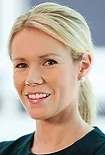Background
Every good sporting event has a mascot! The Gold Coast 2018 Commonwealth Games Corporation (CCG) has successfully registered its trade mark for the BOROBI word in Australia, the name chosen for this year's Gold Coast Commonwealth Games blue koala mascot (the Mark), just in the nick of time.
CCG commenced the trade mark application process in Australia in April 2016, some two years before the Commonwealth Games was set to commence. The application for the Mark claimed priority from a Tongan application filed in 2015.
In July 2016, after the Mark was accepted by IP Australia, Jabree Ltd (Jabree) opposed CCG's trade mark application for the Mark nominating grounds of opposition under sections 42 and 43 of the Trade Marks Act 1995 (Cth) (TMA).
Jabree's claims
Jabree, a registered cultural heritage body for the Gold Coast region, argued that:
- the word 'borobi' originates from the indigenous Australians Yugambeh language and translates into English to mean 'koala'
- most of the sporting and cultural events for the Commonwealth Games will be held on land belonging to the Yugambeh people
- for a word in the Yugambeh language to be used in connection with a commercial activity, anyone seeking to use that word must to seek approval of the Yugambeh people, through the approved decision making process that was adopted by the 'claim group' in their latest native title claim
- use of the Mark by CCG without proper approval and process amounted to misappropriation of the Yugambeh people's intangible cultural heritage, causing offense within indigenous communities, and
- use of the Mark by CCG would mislead the public into believing that CGG's goods and services had been approved by the Yugambeh people, and that the Mark was associated with the Yugambeh people as traditional owners of the Gold Coast region.
CCG's claims
CCG claimed one of its key priorities was to respectfully and meaningfully engage in consultation with Aboriginal and Torres Strait Islander people.
CCG noted the 'borobi' word was registered as a protected word under the Commonwealth Games Arrangements Act 2011 (Qld) (Games Act), so only CGG, the Australian Commonwealth Games Association and the Commonwealth Games Federation are legally entitled to use the word in connection with the event.
Elder Patricia O'Connor, a Kombumerri woman who to her knowledge is the most senior Community Elder of the Yugambeh Language people, and a traditional custodian gave evidence she did not give permission for Jabree to file its opposition on behalf of the community. Ms O'Connor gave evidence she fully supported the trade mark application by CCG, and considers use of the word 'borobi' to be a respectful celebration of culture and language.
Wesley Aird (the sole director of Jabree, and a Yugambeh man) disputed these claims on behalf of Jabree, arguing the consultation process between CCG and advisory committees made up of Community Elders, Traditional Custodians and other Aboriginal people was flawed, and the process failed to actually consult with any member of the Yugambeh community.
In relation to the meetings held by CGG, in his evidence, Mr Aird claimed 'It is clear...that the Applicant had already made the decision to use the word 'Borobi' as the mascot for the Games and the endorsement sought at the meeting on 1 April 2016 was merely a show for those in attendance'.
CCG argued it was not legally required to consult with interested parties, but did so in recognition of the cultural sensitivity surrounding use of the Mark.
Decision of the Trade Marks Office
In rejecting the opposition, the Australian Trade Marks Office found that:
- if a 'claim group' and a decision making process as alleged by Jabree did exist, it was limited to the associated native title claim and ended once that native title claim was unsuccessful
- while legally CCG was not required to, it had consulted with the Yugambeh people about the use of their word and those consultations were performed in a respectful and inclusive manner, even if that was not in a way Jabree recognised
- the Mark does not create a connotation that the traditional owners of the Gold Coast Region have approved or endorsed a licence for use of their language, and even if there was such a connotation, CCG had obtained an endorsement from the Yugambeh people, meaning the opposition ground under section 43 was rejected
- the 'borobi' word used in relation to the goods and services claimed in the Mark, was not offensive, shameful or shocking, and therefore not scandalous under section 42(a) of the TMA, and
- the word 'borobi' is a protected word under the Games Act and CCG had obtained an endorsement from the Yugambeh people, so use of the Mark by CGG could not be 'contrary to law' pursuant to section 42(b) of the TMA.
Lessons
The mascot has certainly not been without controversy; in 2016 CCG had to respond to claims the surfing koala mascot image was a rip-off of a local designer's koala image named 'Nobby'.
The 'Borobi' trade mark is now registered, over two years since the application process began, and fewer than two months before the Gold Coast Commonwealth Games is due to commence. Setting aside the clear sensitivity of issues associated with use (or appropriation) of cultural objects, and the complexity of the legal issues surrounding these matters, and notwithstanding that Australian trade mark registration times are relatively fast by world comparisons, it was a long process to obtain registration in this instance.
To avoid a last minute race to the finish, trade mark owners should engage with advisers early to determine a strategic plan for both use and registration. This is particularly important for highly publicised brands.
The content of this article is intended to provide a general guide to the subject matter. Specialist advice should be sought about your specific circumstances.


